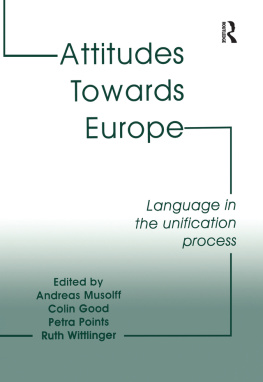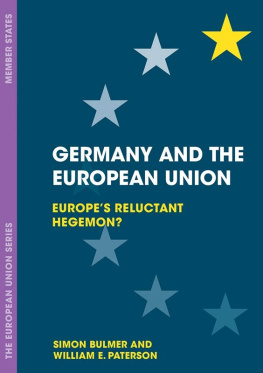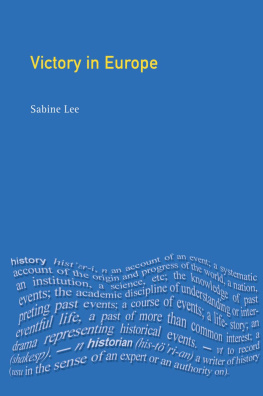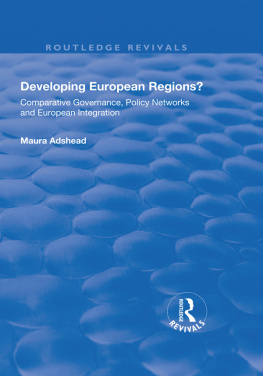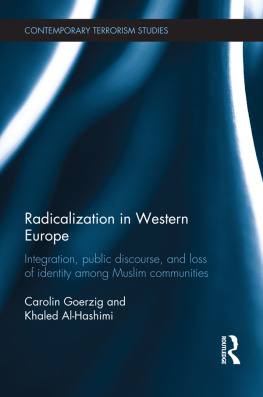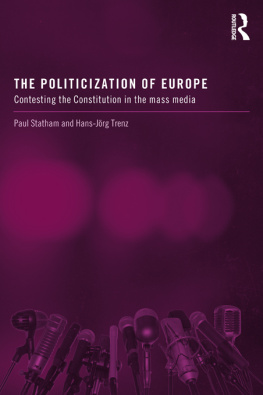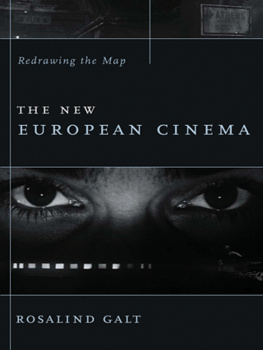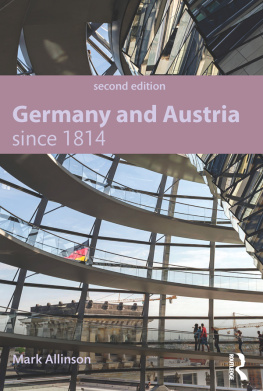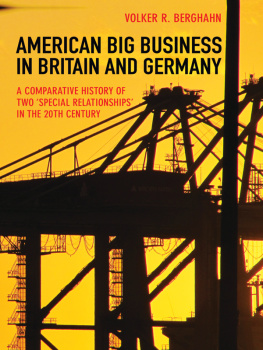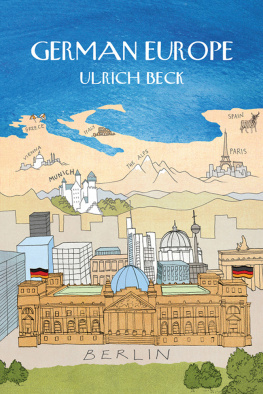ATTITUDES TOWARDS EUROPE
Dedication
After a long and courageous struggle against cancer Colin Good, one of the authors and editors of this volume, died on 22 November 2000. Even at the advanced stages of his illness Colin retained his unstinting enthusiasm for his profession and worked tirelessly to see this project through to its completion. We will miss him.
Attitudes Towards Europe
Language in the unification process
Edited by
Andreas Musolff
University of Durham
Colin Good
University of Durham
Petra Points
University of Durham
Ruth Wittlinger
University of Durham
First published 2001 by Ashgate Publishing
Published 2017 by Routledge
2 Park Square, Milton Park, Abingdon, Oxon, OX14 4RN
711 Third Avenue, New York, NY 10017, USA
Routledge is an imprint of the Taylor & Francis Group, an informa business
Copyright Andreas Musolff, Colin Good, Petra Points and Ruth Wittlinger 2001
All rights reserved. No part of this book may be reprinted or reproduced or utilised in any form or by any electronic, mechanical, or other means, now known or hereafter invented, including photocopying and recording, or in any information storage or retrieval system, without permission in writing from the publishers.
Notice:
Product or corporate names may be trademarks or registered trademarks, and are used only for identification and explanation without intent to infringe.
British Library Cataloguing in Publication Data
Attitudes towards Europe : language in the unification process
1.Public opinion - England 2.Public opinion - Germany 3.Europe - Foreign public opinion. British 4.Europe - Foreign public opinion, German
I.Good, Colin H.
Library of Congress Control Number: 00-110693
ISBN 13: 978-0-7546-1431-9 (hbk)
Contents
Gerlinde Mautner
Ruth Wittlinger
Wolfgang Teubert
Heidrun Krnper
Dieter Herberg
Colin Good
Andreas Musolff
Christina Schffner
Arachne van der Eijk-Spaan
Guide
Colin Good is Professor of German at the University of Durham. His research focuses mainly on the application of insights from linguistic theory to political and ideological texts. His other interests include sociolinguistics of German, translation theory and interpreting. He is the author of Die deutsche Sprache und die kommunistische Ideologie (1975), Presse und soziale Wirklichkeit (1985), Newspaper German. A Vocabulary of Commercial and Administrative German (1995).
Dieter Herberg is Professor of German Linguistics at the Institut fr Deutsche Sprache in Mannheim. His main research interests are in the field of lexicography and orthography of contemporary German. He is co-author of Schlsselwrter der Wendezeit (1997).
Heidrun Kmper is a Researcher at the Institut fr Deutsche Sprache in Mannheim and visiting lecturer at the Technische Universitt Darmstadt. Her main research interests are in the areas of historical semantics, the language of National Socialism, lexicography, post war German language and forensic linguistics. She has recently been awarded a major research grant from the Deutsche Forschungsgemeinschaft.
Gerlinde Mautner is Professor of Business English at the Vienna University of Economics and Business Administration ( Wirtschafts-universitt Wien). Her research interests are in discourse analysis and corpus linguistics, and the genres to which she has applied both methodological frameworks include the discourse of politics, the media, advertising and other forms of corporate communication in the for-profit and non-profit sectors.
Andreas Musolff is Reader in German at the University of Durham. He has published a book and a number of articles on the history and the current use of political terminology and imagery in British and German public discourse.
Petra Points is Course Leader for European Studies and Head of the Language Teaching Centre at the University of Durham, Stockton Campus. Her main research interest is the language of the media and the representations of Germany in the British Press.
Christina Schaffner is Senior Lecturer in the School of Languages and European Studies at Aston University in Birmingham and Co-director of the Institute for the Study of Language and Society. Her main research interests are translation studies, political discourse, textlinguistics, and metaphors. Her publications include Language and Peace (co-edited with Anita Wenden, 1995), Cultural functions of translation (co-edited with Helen Kelly-Holmes, 1995), Conceiving of Europe - Diversity in Unity? (co-edited with Andreas Musolff and Michael Townson, 1996), Translation and Quality (ed., 1997), Translation and Norms (ed., 1999)
Wolfgang Teubert holds the Collins Chair of Corpus Linguistics at Birmingham University, after having headed the Multilingual Reasearch group at the Institut fur Deutsche Sprache for many years. He is editor-inchief of the International Journal of Corpus Linuistics and has published widely on multilingual semantics and discourse analysis.
Arachne van der Eijk-Spaan studied Classics at Leiden University in the Netherlands. She works as an interpreter and translator in Dutch and German and she teaches Dutch at the University of Newcastle upon Tyne. She is a post-graduate student at the University of Durham.
Ruth Wittlinger is Lecturer in European Studies at the University of Durham, Stockton Campus. Her main research interest is in the area of German politics and in the interdisciplinary study of politics and literature, with particular reference to Britain in the 1980s.
HANS-FRIEDRICH VON PLOETZ
German Ambassador to Britain
For over two thousand years the term 'Europe' has been used and discussed, and in this long period it has been applied to the most varied political, ideological and geographical concepts. As long as 'Europe' understood itself as a unity, distict from other philosophical, religious and geographical identities, the term was not particularly controversial.
Today things are more complicated. Christian Europe split into catholic and Protestant, into capitalist and communist; and today we have the Europes of the European Union, the council of Europe and other European organisations, each with its different group of members.
We are, I am glad to say, in the process of overcoming old dividing-lines. The project of EU reform and further development initiated by the Treaty of Amsterdam and to be continued by the Treaty of Niece, expected in autumn this year, provide the basis for an unprecedented enlargement of the EU to the East and South East. A truly historic development which will, step by step, lead to the lasting emergence of a just and peaceful order in all of Europe.
In the last few years there has been a gratifying convergence of ideas in many areas. But the lively discussion on 'Europe' will continue, including, of course, in the domestic political arena. Geography and history contribute to a wide range of views, and sometimes also misunderstandings, about the goals and contents of specific European policies.
Both the German and British governments are committed to the task of shaping a modern and competitive Europe for the age of globalisation, just as their other partners in the EU. By further intensifying our bilateral relations, for example through German-British youth exchange and the promotion of German in British schools and universities, we are making a vigorous contribution to greater mutual understanding and friendship.

